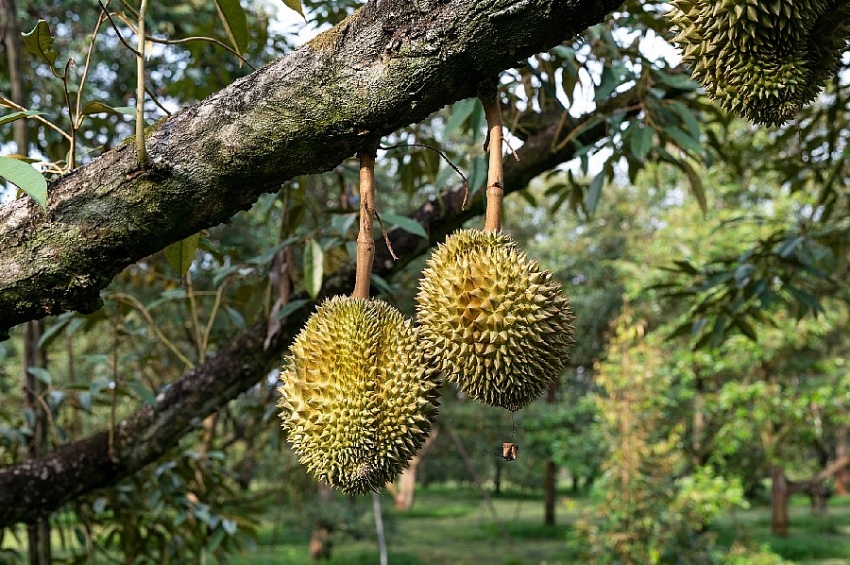Foreign insurtech businesses praise Vietnam’s potential
Australian-headquartered insurtech firm Hillridge and MSIG Vietnam, a non-life insurance business, last week forged a collaborative agreement to introduce an innovative drought insurance product designed to shield Vietnamese farmers from climate volatility in Southeast Asia.
 |
| Foreign insurtech businesses praise Vietnam’s potential, source: Hillridge Vietnam |
Leveraging Hillridge’s platform, this insurance offering caters to any agricultural enterprise vulnerable to the adverse impacts of drought. By harnessing real-time data, farmers can access insurance quotes online, streamlining the entire process between policyholders and the insurance company.
Dale Schilling, CEO of Hillridge, explained the impetus behind the swift introduction of this product, driven by the protracted ramifications of El Nino on Vietnamese soil in 2023.
“A recent field visit to the coffee-producing regions of the Vietnam’s Central Highlands revealed first-hand accounts from farmers whose harvests had been marred by recurrent droughts, significantly impairing their livelihoods. In light of these challenges, farmers find themselves in pressing need of robust safeguards to protect their income against such pernicious circumstances,” Schilling stated.
He envisioned that climate insurance as a crucial component of modern and sustainable farming practices globally, providing reasonable and accessible coverage.
Schilling added, “Vietnam is the inaugural country where Hillridge expands the provision of this flagship product following its successful establishment in the Australian market. While other nations have witnessed various insurance forms and similar case studies, this particular offering has yet to emerge in Vietnam.”
Elsewhere, Vietnam is also the first country in Asia where Igloo – an insurtech AI platform from Singapore – launched a blockchain-based Weather Index Insurance in April to protect paddy farmers.
According to analytics firm Global Data, the Vietnamese insurance industry is poised to soar to a staggering $3.5 billion by 2026. However, Igloo said, the nascent insurance landscape in Vietnam remains largely untapped, with insurance technology products accounting for a mere 2-3 per cent of the overall market revenue.
“These factors have firmly established Vietnam as a pivotal market for Igloo, with the country consistently ranking among their top-performing territories,” Tri Nguyen, Vietnam country manager at Igloo, told VIR.
Igloo is set to be the first in Asia to distribute insurance products through a leading convenience store chain in Vietnam, making insurance products more accessible for Vietnamese people.
“Two months ago, Igloo successfully secured an additional $27 million in its Series B extension, bringing a close to its Series B funding round at $46 million. With this fresh fund, we will continue to extend our product portfolio, looking for more opportunities to protect the under-insured segments in Vietnam,” said Nguyen.
Elsewhere, Home Credit Group last month unveiled a partnership, which is set to debut this month, in the realm of value added services with Singaporean insurtech firm ZA Tech to provide insurance products tailored to meet the discerning demands of customers.
With a history of being founded by ZhongAn Online, and backed by Softbank’s Vision Fund 1, ZA Tech leverages technology to upgrade the insurance value chain and digital ecosystems to offer affordable and accessible insurance options.
The collaboration will enable Home Credit to offer products such as insurance for both new and used mobile phones, extended warranties, insurance against accidental damage, liquid damage, which are new insurance forms for the Vietnamese market. ZA Tech will source insurance and third-party partners to provide these products. Additionally, it will serve as a partner, providing value through direct sales and advisory models to Home Credit.
Ngo Trung Dung, deputy general secretary of the Insurance Association of Vietnam, predicted that automated virtual assistants and chatbots will be deployed in customer care centres, ensuring quick responses to inquiries. Insurance application reviews will be expedited through automated systems capable of analysing data and reading handwritten documents.
“For example, according to government regulations, the standard processing time for an insurance compensation claim should not exceed 14 days. However, insurtech could empower traditional businesses to proceed payments not on a daily basis, but by the hour or even minutes,” explained Dung.
What the stars mean:
★ Poor ★ ★ Promising ★★★ Good ★★★★ Very good ★★★★★ Exceptional
Related Contents
Latest News
More News
- Shinhan Life Vietnam builds growth on people strategy (October 07, 2025 | 09:45)
- Insurance sector initiates rapid response after Typhoon Bualoi devastation (October 03, 2025 | 18:25)
- Non-life insurers face mounting pressure after typhoon hits motor sector (October 02, 2025 | 18:59)
- Prudential Vietnam delivers responsible investment package (September 25, 2025 | 10:37)
- Insurers struggle to keep pace with EV rapid adoption (August 29, 2025 | 17:12)
- Non-life insurance market in sees bright spots in H1 despite rising challenges (August 28, 2025 | 16:21)
- Life insurance rebounds with renewed growth and trust (August 06, 2025 | 18:04)
- Global Care launches Vietnam’s first insurance KOL platform (July 25, 2025 | 09:42)
- Liberty Insurance leaves mark at 2025 Insurance Asia Awards with dual wins (July 14, 2025 | 07:27)
- New CEO takes helm at Prudential Vietnam (July 07, 2025 | 17:51)

 Tag:
Tag:




















 Mobile Version
Mobile Version